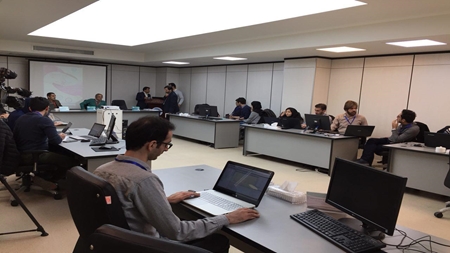23 Teams Will Compete in the National Brain–Computer Interface Competition
23 Teams Will Compete in the National Brain–Computer Interface Competition

According to the public relations and information center of the Vice-Presidency for science and technology affairs, the first national brain-computer interface competition (iBCIC) will be held by the national brain mapping laboratory in two in-person and remote stages. In this competition, 23 teams will compete from across the country, six of which will move on to the final stage.
The final six groups will compete at the location of the laboratory and under the supervision of a jury committee from various universities, which includes Ali Moti Nasrabadi from Shahed University, Bahador Makiabadi from Tehran University of Medical Sciences, Mohammad Bagher Shams Elahi from Sharif University of Technology, and Farhad Faraji from K. N. Toosi University of Technology. The iBCIC was held with the topic of brain processing by electroencephalogram (EEG) and with an emphasis on the application of recorded waves on the head in rehabilitation of individuals with disabilities.
In addition, the name of the winners will be announced in the panel of the national brain-mapping laboratory in the sixth congress of basic and clinical neurosciences (BCNC) on December 21st 2017 and the winners will receive their prizes.
First group: 20 million IRR in cash and eight hours of application of EEG laboratory services free of charge
Second group: 13 million IRR and five hours of use of EEG laboratory services free of charge
Third group: 7 million IRR and three hours of application of EEG laboratory services free of charge
According to this report, brain-computer interface is a system that can improve the quality of life of people through the creation of a direct relationship between brain and computer without the interference of the other body parts. The aim of brain-computer interface is creating a connection between the brain and an external processor. These interfaces can identify the requirements of a person through brain signals and implement them by a device connected to the brain. This unique feature has led to this idea by physicians, physicists, neuroscience and computer experts and other researchers that many problems, such as medical problems, could be solved by this method. Numerous studies have been conducted on the development of brain-computer interfaces across the world in the past decades. Given the advancements in this area, this systems are turning into applicable devices. It is noteworthy that significant studies have been carried out in this area in Iran.




comment